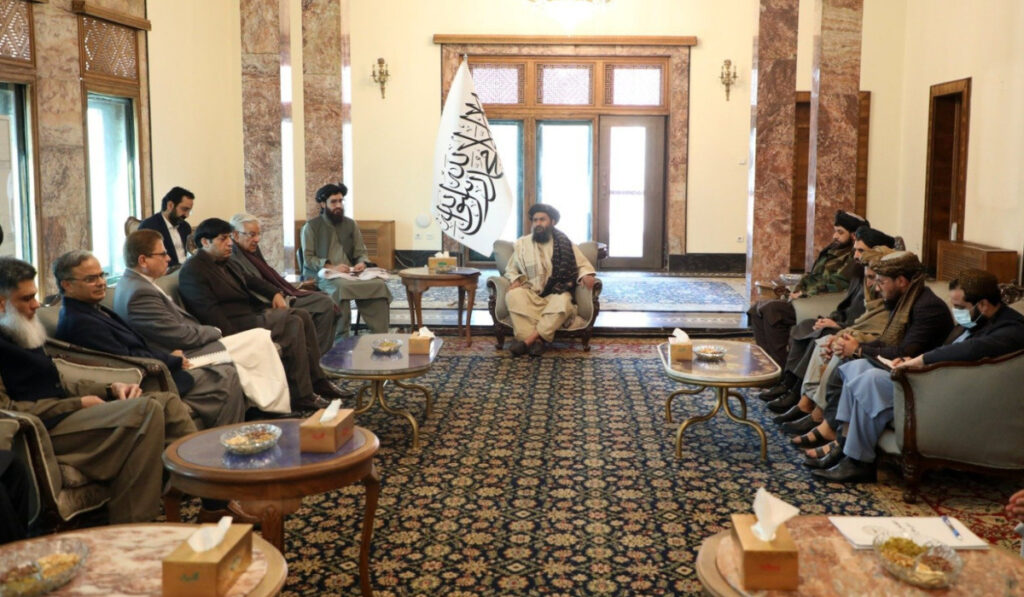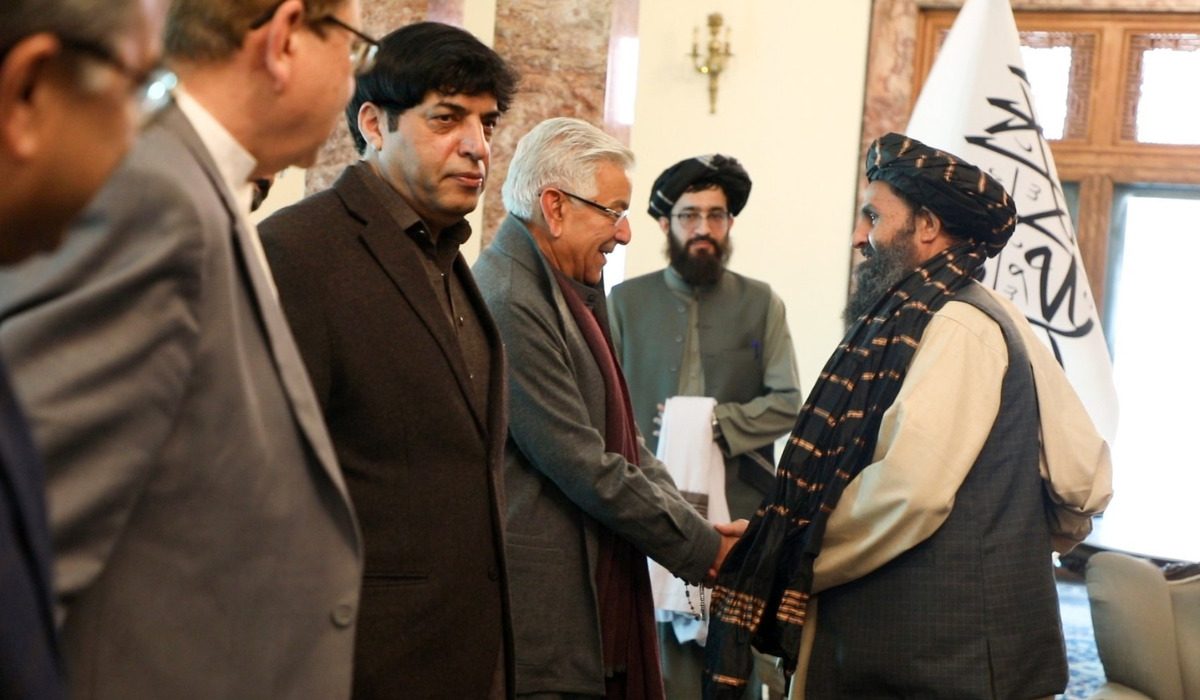A high-ranking delegation led by Pakistan’s Defence Minister Khawaja Muhammad Asif visited Kabul on Wednesday and held talks with a number of Taliban officials.
Pakistan’s intelligence chief Gen. Nadeem Ahmed Anjum was part of the delegation.
The visit comes amid an increase in Tehreek-e-Taliban Pakistan (TTP) attacks in Pakistan and the ongoing closure of the Torkham border crossing to traffic. Sporadic clashes have also reportedly broken out between Taliban and Pakistani forces over the past three days.
According to Pakistan’s foreign ministry, the delegation met with the senior leadership of the Taliban, including Abdul Ghani Beradar, Mohammad Yaqoob Mujahid, Sirajuddin Haqqani and Amir Khan Muttaqi.
Matters relating to the growing threat of terrorism in the region, particularly by TTP and Daesh came under discussion, the ministry said.

The two sides agreed to collaborate to effectively address the threat of terrorism posed by various entities and organizations, the ministry added.
The ministry said that both sides agreed to strengthen bilateral cooperation in various fields to further enhance the fraternal relations between the two countries.
Deadly month for Pakistan
In late January, a splinter group that broke away from the TTP, Jamaat-ul-Ahrar carried out the Peshawar mosque suicide bombing that left 101 people dead and at least 225 wounded.
According to statistics released by the Pakistan Institute for Conflict and Security Studies (PICSS), an independent Islamabad-based think tank, terrorists killed 134 people and injured at least 254 across 44 separate terror attacks in the month of January.
This made January 2023 the deadliest month for terror in Pakistan since July 2018.
In 2022, Pakistan faced at least 376 terror attacks in which 533 people were killed and 832 were injured, according to PICSS. The last time the country experienced more than 300 terror attacks in one year was in 2017.
The TTP is banned in Pakistan and is considered a global terrorist organization by the US and while it has waged a 15-year uprising, a temporary cease-fire was in place until late November between Islamabad and the group.
When the TTP ended the cease-fire it declared that it would resume its attacks and has since claimed responsibility for numerous attacks in the country.





